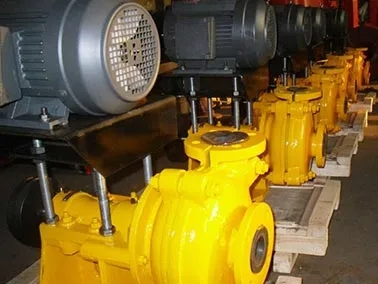Nov . 26, 2024 00:00 Back to list
Centrifugal Pump Applications in Wastewater Treatment Plants for Efficient Operations
The Role of Centrifugal Pumps in Wastewater Treatment Facilities
Wastewater treatment is a critical process in maintaining environmental health and safeguarding public safety. One of the key components of this system is the centrifugal pump, which plays a crucial role in transporting and managing wastewater efficiently in treatment facilities. This article explores the significance, benefits, and operational mechanisms of centrifugal pumps within wastewater treatment facilities.
Understanding Centrifugal Pumps
Centrifugal pumps are mechanical devices that convert electrical energy into hydraulic energy, primarily utilized for transporting fluids. They function by rotating a series of impellers, which create a centrifugal force that propels the wastewater through a discharge pipe. The basic design consists of a pump casing, an impeller, a motor, and various fittings that enable the pump to draw in and discharge fluid.
Importance in Wastewater Treatment
In wastewater treatment plants, the primary objective is to remove contaminants from wastewater before it is released back into the environment. Centrifugal pumps are indispensable in several stages of this process, including
1. Influent Transfer Centrifugal pumps are used to transfer raw sewage and wastewater from collection channels to the treatment units. Their efficiency in handling large volumes of fluid makes them ideal for this task.
2. Activated Sludge Process This common method in wastewater treatment relies on centrifugal pumps to circulate mixed liquor in aeration tanks. The pumps help maintain optimal conditions for the activated sludge microorganisms that break down waste materials.
3. Sludge Management After treatment, sludge is generated and needs to be transported to further processing or disposal sites. Centrifugal pumps are instrumental in moving thickened sludge to digesters or dewatering equipment.
4. Effluent Filtration Post-treatment, the treated effluent is pumped through filtration systems to ensure high-quality water is released. Centrifugal pumps maintain steady flow and pressure for effective filtration.
centrifugal pump wastewater factories

Advantages of Centrifugal Pumps
Centrifugal pumps offer several advantages that make them the preferred option in wastewater treatment facilities
- Efficiency They can handle large volumes of fluid with minimal energy consumption, making them economical for continuous operations.
- Versatility Centrifugal pumps can handle various types of fluids, including those with solids and abrasive materials, without significant wear on the pump components.
- Reliable Operation With fewer moving parts compared to positive displacement pumps, centrifugal pumps require less maintenance and have longer lifespans.
- Consistent Flow Rates Thanks to their design, these pumps provide a steady flow rate, which is essential for the consistent operation of treatment processes.
Challenges and Solutions
Despite their advantages, centrifugal pumps face challenges in wastewater treatment, such as clogging, wear from abrasives, and variable flow conditions. To mitigate these issues, operators can take preventive measures, including regular maintenance schedules, using pumps designed for tough conditions, and implementing smart monitoring technologies that track performance in real-time.
Conclusion
Centrifugal pumps are the backbone of wastewater treatment facilities, ensuring that raw sewage is effectively processed and treated before being returned to the environment. Their efficiency, reliability, and versatility make them a critical asset in modern wastewater management. As technology advances, the integration of smart systems and improved materials will further enhance the performance of centrifugal pumps, ensuring that they continue to meet the demands of increasingly sophisticated wastewater treatment processes. The ongoing investment in these vital components underscores their importance in protecting our water resources and supporting sustainable development goals.
-
Top Submersible Pump Companies High Quality Manufacturers & Suppliers in China
NewsJul.08,2025
-
High Quality Seal for 5 Inch Dredge Pump Reliable China Manufacturer & Supplier
NewsJul.08,2025
-
High-Efficiency Slurry Sand Pump from Leading China Manufacturer – Durable & Reliable Solutions
NewsJul.07,2025
-
High-Quality Slurry Pump Made in China Durable Steel Mill Slurry Pump & Parts
NewsJul.07,2025
-
High Quality Excavator Dredge Pump Manufacturer & Suppliers from China – Reliable, Durable, Efficient Solutions
NewsJul.07,2025
-
Wholesale Slurry Pump Closed Impeller Supplier High Efficiency China Slurry Pump Closed Impeller
NewsJul.06,2025
